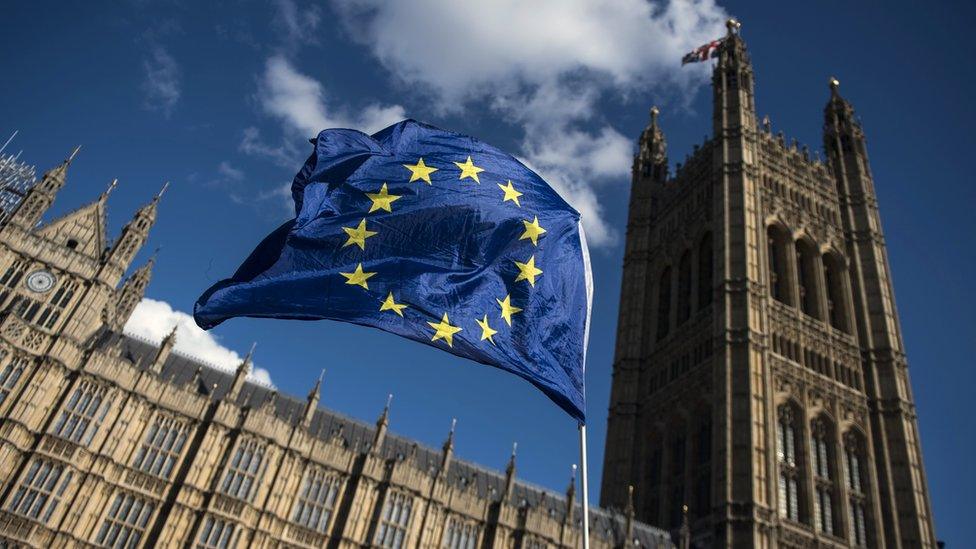Brexit: Can May still bring back her deal after Bercow statement?
- Published

Here is the relevant commandment from Erskine May aka the parliamentary bible: "A motion or an amendment which is the same, in substance, as a question which has been decided during a session, may not be brought forward again during that same session."
So, how can the government get round this rather large obstacle and get another vote on Theresa May's deal?
Change the rules...
Well, first of all, rules are there to be changed.
If MPs suspend or change the "standing orders" of Parliament, they could get the Brexit deal back on the agenda.
But here the power would be in the hands of Parliament as a whole, and could not be done at the whim of government ministers.
Change the offer...
Secondly, the government could change the proposition on offer.
The former Attorney General Dominic Grieve has suggested that something "substantially" different would be to ask Parliament to vote for the deal subject to a referendum.
It may be argued too that moving the Brexit date from 29 March to a later date would be substantial enough if Mrs May tacks this on to her deal.
But the Speaker can set a high bar here.
In response to MPs' questions, he has hinted that simply coming up with new legal advice or clarifications wouldn't be substantial enough.
Change the Parliament...
So, already there is a focus on the word "session" in Erskine May.
If MPs can't discuss the same thing in the same session of Parliament, why not simply start a new one?
In the parlance, Parliament would be "prorogued" - in other words, the Queen would end the current session and a new one would begin soon after.
But this strategy would be extremely controversial, and may even be resisted by Buckingham Palace if it appeared that the monarchy was being used in a politically contentious way.
- Published18 March 2019
- Published30 July 2019